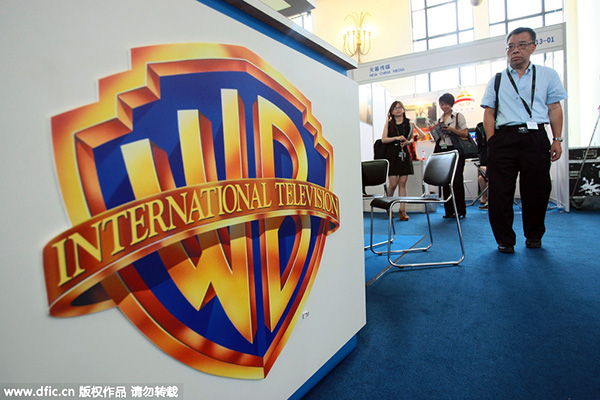 |
|
A Warner Brothers Entertainment stand at the Shanghai Television Festival, June 16, 2012. [Photo/IC] |
A joint venture announced by a leading Chinese entertainment company and Hollywood's most iconic studio on Sunday, just two days before the state visit of President Xi Jinping to the United States, can be viewed as a symbolic move highlighting the progress of cultural exchanges and cooperation between the two countries.
But by limiting the significance of the move to the progress made until now, we would be underestimating what China Media Capital and Warner Bros. Entertainment really want to do with their joint venture, Flagship Entertainment Group Limited.
Headquartered in Hong Kong, with offices in Beijing and Los Angeles, the new entity will combine the expertise of Hollywood's largest studio with China's preeminent investment and operation platform to tap into both the rapidly growing Chinese market for premium content and the increasing demand for high-quality Chinese language movies around the globe.
As a business, this Sino-US partnership is almost bound to succeed.
In China, the world's second-largest and fast-growing movie market, box office receipts soared one-third to about 30 billion yuan ($4.8 billion) last year while that of the US and Canada combined fell 5 percent to $10.4 billion. This year, China has collected more box office returns in the first nine months than the whole of last year.
With China's box office returns expected to cross $10 billion a year in the next four years, investors should not hesitate to bet in this huge market even though the Chinese economy is growing at a slower pace.
More challenging than making profit from the Chinese movie market is the joint venture's ambition of making great movies based on China's incredibly rich history and culture for new generations of filmgoers, in China and around the world.
Creative storytelling and expertise in producing global titles will help but not guarantee the success of the Flagship's first production which could be released as early as 2016 hit.
But it is worth dreaming about resonating with both Chinese and global audiences while helping to widen and deepen cultural exchanges between China and the rest of the world.